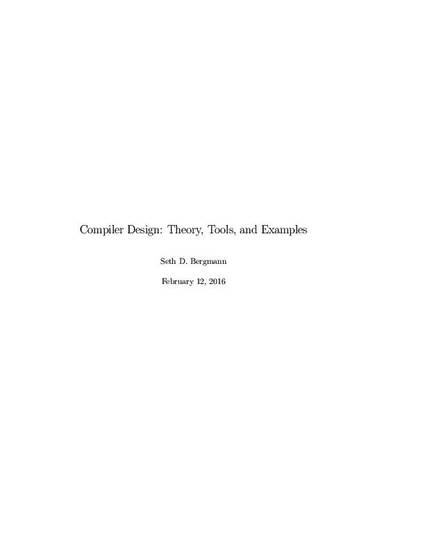
Compiler design is a subject which many believe to be fundamental and vital to computer science. It is a subject which has been studied intensively since the early 1950’s and continues to be an important research field today. Compiler design is an important part of the undergraduate curriculum for many reasons: (1) It provides students with a better understanding of and appreciation for programming languages. (2) The techniques used in compilers can be used in other applications with command languages. (3) It provides motivation for the study of theoretic topics. (4) It is a good vehicle for an extended programming project.
There are several compiler design textbooks available today, but most have been written for graduate students. Here at Rowan University, our students have had difficulty reading these books. However, I felt it was not the subject matter that was the problem, but the way it was presented. I was sure that if concepts were presented at a slower pace, with sample problems and diagrams to illustrate the concepts, that our students would be able to master the concepts. This is what I have attempted to do in writing this book.
Available at: http://works.bepress.com/seth-bergmann/3/

This is an open source textbook using a Creative Commons license. Copyright is retained by the author.